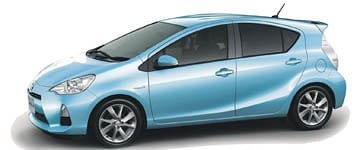
In the case of the three bottom CO2 bands, flat rate increases apply. Band A (up to 120g CO2 per km) increases from €104 to €160, Band B (more than 120g to 140g CO2 per km) goes from €156 to €225 and Band C (more than 140g to 155g CO2 per km) from €302 to €330.
So drivers of vehicles in Band A, the clean, green band, face a whopping 53 per cent increase in annual tax, while drivers of vehicles in Band B pay a 44 percent increase. At the same time drivers of vehicles in Band F, for example, see a motor tax increase of seven percent, while drivers of older (and less efficient) cars with motor tax rates based on engine size face a more modest and proportional increase.
VAT goes up 2 per cent, adding about €450 to the price of a new Ford Focus, for example.
For the vast majority of post-July 2008 cars taxed on the basis of CO2 emissions, the rates of tax remain below the tax that would be charged under the older system based on engine capacity.
Motor tax receipts were €1,060m in 2008, reducing to €1,024m last year, with final receipts for 2011 expected to be in the order of €998m.
The proposed increases are expected to generate in the order of €47 million over a full year. Rather than going to the Local Government Fund, this revenue will go directly to the Exchequer as an immediate and necessary measure towards national fiscal adjustment.
Naturally, the motor industry is not pleased at the new tax penalties affecting motorists. According to Eddie Murphy, CEO of Ford Ireland, “The road tax increase represents a significant row back on the CO2-based taxation system that was introduced in 2008, as it hits hardest those car owners who opted for lower A and B band cars that produce the lowest CO2 emissions. In so doing, the Minister is negating a lot of the environmental gains that the industry has made over the last number of years”.
However Mr Murphy did welcome the export tax relief which brings us into lime with other EU countries.
In a statement released by Fiat Group Automobiles Ireland, Fiat said it “finds these increases deeply unfair as they specifically target those conscientious buyers who recently opted for cleaner and more energy-efficient vehicles, placing an unwarranted and disproportional additional financial burden on motorists who clearly value the low running costs previously associated with these vehicles”.





